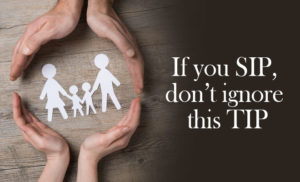Claimable Business Expenses: Beyond the Basics
Running a small business in Canada comes with numerous responsibilities, and managing your taxes is one of the most important. While most entrepreneurs are aware of basic deductible expenses like office supplies and utility bills, there are several other categories that often go unnoticed. Claiming all eligible business expenses not only helps lower your taxable income but also gives a clearer picture of your company’s financial health. Let’s explore some often-overlooked deductions and how to document them properly.
1. Capital Cost Allowance (CCA)
Instead of deducting the full cost of large assets in a single year, the Canada Revenue Agency (CRA) allows you to depreciate them over time using the Capital Cost Allowance. This applies to assets like computers, office furniture, vehicles, and machinery. The CCA system categorizes assets into different classes, each with its own rate of depreciation. Keeping detailed records of asset purchases and calculating CCA accurately can significantly reduce your tax bill over several years.
2. Business Use of Home
If you operate your business from home, you may be eligible to claim a portion of your home expenses. This includes mortgage interest or rent, property taxes, home insurance, utilities, and maintenance. The portion you can claim is typically based on the percentage of your home used for business activities. To substantiate the claim, maintain clear documentation and calculate the square footage accurately.
3. Vehicle Expenses
If your vehicle is used for business purposes, you can deduct a proportionate amount of your total vehicle expenses. This includes fuel, maintenance, insurance, registration, lease payments, and even parking. To qualify, it’s crucial to keep a detailed logbook that records the date, purpose, and distance of each business trip. Personal use of the vehicle must be excluded when calculating the deductible percentage.
4. Professional Fees and Legal Services
The costs associated with hiring accountants, bookkeepers, legal advisors, and business consultants are fully deductible as long as the services are related to business operations. These fees may include tax preparation, legal document review, and financial planning. Retain all invoices and payment proofs to ensure your claim is accepted during an audit.
5. Insurance Premiums
Business-related insurance premiums are generally tax-deductible. These include liability insurance, commercial property insurance, and insurance on business equipment. If you operate from home, you can deduct the portion of your home insurance that relates to your business area. Keep your policy documents and payment receipts on file for verification.
6. Bad Debts
If you’ve made a sale and reported the income but are unable to collect the payment, you can claim it as a bad debt expense. This applies when there is no reasonable expectation of collection. Make sure to document all your attempts to recover the debt and provide evidence that the debt was included as income in a previous year.
7. Meals and Entertainment
You may deduct 50% of the cost of meals and entertainment if they are directly related to earning business income. This includes client meetings, staff lunches, or travel meals. To make these expenses audit-proof, note the purpose of the meeting, the attendees, and keep itemized receipts.
8. Training and Education
Costs incurred for training programs, workshops, or courses that improve your business skills or knowledge can be deducted. This includes registration fees, travel expenses related to the event, and course materials. However, the training must be relevant to your business operations to qualify.
9. Advertising and Promotion
Expenses for promoting your business, such as digital marketing, print ads, and sponsorships, are fully deductible. Even branded merchandise and website development costs can fall under this category. As long as the purpose is to attract or retain customers, these expenses are eligible for deduction.
Final Thoughts
Properly identifying and recording claimable business expenses goes a long way in reducing your tax burden. It’s important to maintain organized records, understand CRA requirements, and consult a tax professional when needed. For more tailored advice and guidance, businesses can turn to professionals listed on the SmallBizPros.ca tax services website. With the right support, managing your business expenses can become a strategic advantage—not just a tax-time chore.


